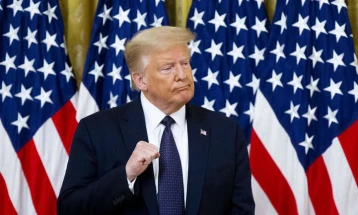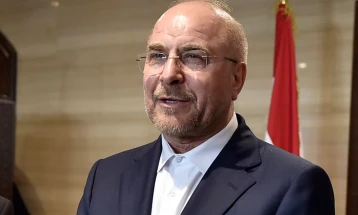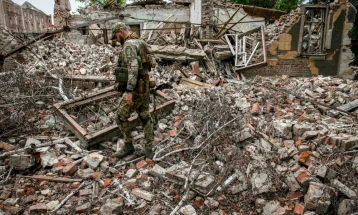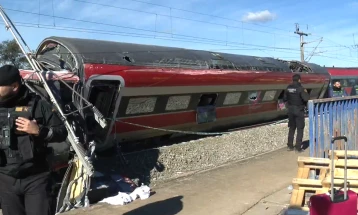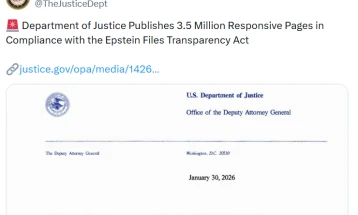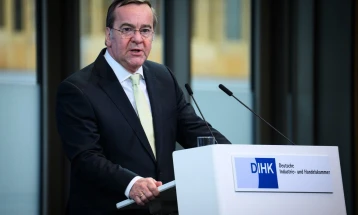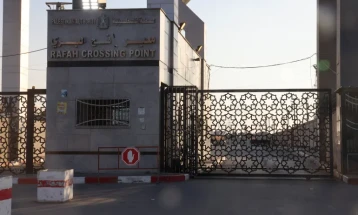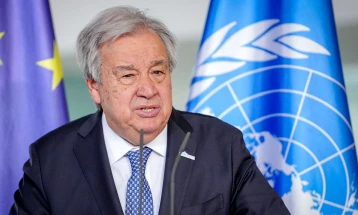G7 calls on Israel to respect human rights in Gaza, refrain in Rafah
- The leaders of the world's seven leading industrialized democracies called on Israel to respect human rights in the war on Gaza and to refrain from a major offensive in Rafah in their final declaration on Friday, amid concerns about the civilian population.
- Post By Ivan Kolekevski
- 11:25, 15 June, 2024
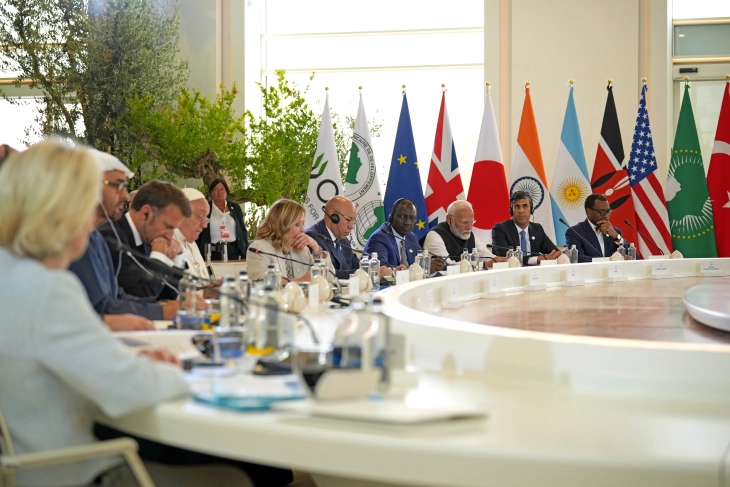
Bari, 15 June 2024 (dpa/MIA) - The leaders of the world's seven leading industrialized democracies called on Israel to respect human rights in the war on Gaza and to refrain from a major offensive in Rafah in their final declaration on Friday, amid concerns about the civilian population.
They condemned the October 7 attack by the Palestinian Islamist Hamas in the strongest terms, alongside the group's strategy of using civilians as shields.
They also warned the Israeli leadership, after criticism worldwide of the high number of civilian casualties and catastrophic humanitarian situation in Gaza due to the Israeli military operation there, particularly concerning Rafah, which is intensely overcrowded by those fleeing fighting elsewhere in the densely-packed coastal strip.
Israel must respect international law and human rights in its military action against Hamas, the declaration says. "We are deeply concerned by the consequences on the civilian population of the ongoing ground operations in Rafah, and the possibility of a full-scale military offensive."
This would have further dire consequences for the civilian population, it says.
The war in Gaza was unleashed by the unprecedented attack by Palestinian Islamist Hamas on Israel on October 7, killing around 1,200 people and taking another 250 as hostages. Around 120 are still in the hands of Hamas, but it is feared that many are already dead.
Israel responded to the attack with a massive military offensive on Gaza, in which at least 37,232 people have been killed and many more thousands injured, according to the health authorities, controlled by Hamas.
Around 85% of the population in Gaza, 1.9 million people, has been forcibly displaced in the wake of the Israeli attacks, according to UN figures.
Israel deems Rafah, in southern Gaza, the last stronghold of Hamas but fears are growing that an expansion of the Israeli offensive in Rafah, crowded by refugees fleeing the fighting, could lead to mass casualties.
"We call on the government of Israel to refrain from such an offensive," the G7 group said, after Washington in particular put pressure on Israel to refrain from a large-scale invasion of Rafah.
The final declaration also called on all parties involved to allow unhindered access for humanitarian aid, a plea directed in particular at the Israeli leadership, which has refused to open border crossings to the Gaza Strip for aid deliveries in recent months.
The G7 declaration also criticises Israel's settler policy in Palestinian territories.
The G7 had also committed to the three-phase plan presented by US President Joe Biden last month, providing for a full ceasefire lasting six weeks, during which a group of hostages will be released in return for the release of Palestinians held in Israeli prisons.
The second phase foresees a permanent end to hostilities and the release of the remaining hostages.
The reconstruction of the Gaza Strip is to begin under the third phase.
The G7 echoed comments made earlier by US Defense Secretary Lloyd Austin, who called on Israel to better protect the civilian population in Gaza.
"The number of casualties has been far too high," said Austin on Friday on the fringes of a meeting of NATO defence ministers in Brussels.
"I have engaged my counterpart on a number of occasions and and encourage them to be more precise, and also make sure that we're protecting the civilians in the battlespace," Austin said.
Israel must do everything possible to minimize the number of civilian casualties in the combat zone, he said.
Achieving military objectives and protecting the civilian population in a combat zone are not mutually exclusive, said Austin, of Israel's goals in Gaza.
Austin emphasized that Hamas mingles with the civilian population and uses them as human shields, describing these as "despicable tactics."
However, the US official said, protecting the civilian population is a "strategic imperative."
The US is Israel's closest ally but has become increasingly critical of the Israeli government's policies.
Washington also imposed sanctions on the radical Israeli group Tzav 9 for targeting aid supplies sent to Palestinian civilians in Gaza.
"For months, individuals from Tzav 9 have repeatedly sought to thwart the delivery of humanitarian aid to Gaza, including by blockading roads, sometimes violently, along their route from Jordan to Gaza, including in the West Bank," the State Department said in a statement.
"They also have damaged aid trucks and dumped life-saving humanitarian aid onto the road."
Department spokesman Matthew Miller cited an incident on May 13, when Tzav 9 members looted and set fire to two trucks near Hebron in the West Bank carrying life-saving aid to Gaza.
The provision of humanitarian aid is crucial to reduce the risk of famine in the Gaza Strip, Miller stressed.
"The Government of Israel has a responsibility to ensure the safety and security of humanitarian convoys transiting Israel and the West Bank enroute to Gaza," he said.
"We will not tolerate acts of sabotage and violence targeting this essential humanitarian assistance."
Photo: dpa
